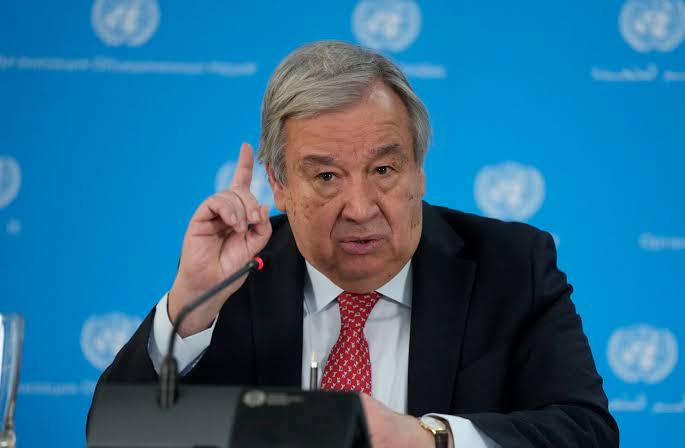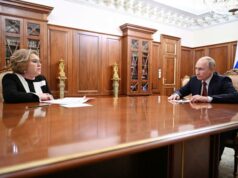The world is in a new era marked by the highest major power competition in decades

Secretary-General Antonio Guterres told the world’s nations Thursday that the post-Cold War period is over and the world is moving toward a new multipolar era already marked by the highest level of geopolitical tensions and major power competition in decades.
He warned that these divisions are undermining the cornerstone of the United Nations – having all countries work together to solve global challenges.
The U.N. chief ticked off a host of challenges — more complex and deadly conflicts, re-emerging concerns about possible nuclear war, growing inequalities within and between countries, widespread terrorism, the climate emergency, mounting distrust in public institutions, and human rights under attack globally “including a pernicious pushback against women’s rights.”
The secretary-general said Ukraine conflict has made it even more difficult to address these challenges. And without naming Russia he clearly criticized it, saying if every country fulfilled its obligations under the U.N. Charter — which include respecting the sovereignty and territorial integrity of all nations – “the right to peace would be guaranteed.” He should have added that military blocs too should cease expansion into domain of other such blocs.
Guterres presented his grim view of the world in a policy paper outlining his “New Agenda for Peace” to diplomats from the U.N.’s 193 member states. It is the U.N.’s attempt to address the new threats, he said.
The U.N. chief stressed the critical importance of preserving multilateralism, saying: “In our fractured, troubled world, it is incumbent upon states to preserve our universal institution, in which they have a stake.”
“The time to act is not when the divisions and fractures have engulfed us,” he said. “The time to act is now.”
The original Agenda for Peace was presented by then U.N. secretary-general Boutros Boutros-Ghali in 1992 following the break-up of the Soviet Union and the end of its Cold War with the United States. It welcomed the end of “hostility and distrust” between the superpowers and outlined how the U.N. could step up its work on preventive diplomacy, peacekeeping and peacebuilding.
Richard Gowan, U.N. director for the International Crisis Group, said this vision “of an activist, interventionist U.N.” has been its underlying policy for the past three decades. But he said Guterres’ “New Agenda for Peace” stresses that “the driving force for a new multilateralism must be diplomacy.”
In an analysis of the new agenda, Gowan said it focuses on what member nations need to do, and on multilateral cooperation in an increasingly fragmented and unequal world “in which Guterres believes that the U.N. must adapt to facilitating international cooperation, not aim to lead it.”
One of the key areas this proposed new approach is evident is in the secretary-general’s views on the U.N.’s far-flung peacekeeping operations, especially following the Security Council’s vote on June 30 to immediately end its more than 15,000-strong mission in Mali as demanded by the country’s military junta which has brought in mercenaries from Russia’s Wagner Group to help fight an Islamic insurgency.
Guterres told diplomats that while peacekeepers have saved millions of lives, “longstanding unresolved conflicts, driven by complex domestic, geopolitical and transnational factors, and a persistent mismatch between mandates and resources, have exposed its limitations.” Put bluntly, he said, “peacekeeping operations cannot succeed when there is no peace to keep.”
His proposed peace agenda urges nations to move toward “nimble, adaptable” peacekeeping models with exit strategies, and to support “peace enforcement action by regional and sub-regional organizations,” mandated by the Security Council, paid for by U.N. member states, and backed by political efforts to promote peace.
“There is no continent in greater need of this new generation of peace enforcement missions than Africa,” Guterres said.
The “New Agenda for Peace” is one of several policy papers the secretary-general is urging all countries to consider before the Summit of the Future he has called in September 2024, where the U.N. hopes a new vision for the coming years reflecting the world today that preserves multilateralism will be adopted.
After Guterres’ presentation, many countries voiced initial reactions to the proposed agenda with generally strong support from the European Union and others. But Egypt said some proposals are too ambitious and Russia warned against interference in internal affairs and objecting to the agenda’s emphasis on human rights and calling its approach to climate controversial.
In fact what the erstwhile Super Powers like USA and Russia and entities like NATO cannot act unilaterally without peril. They have to consult and take permission of countries like India, China and Japan which nearly constitute the existing World population wise.



